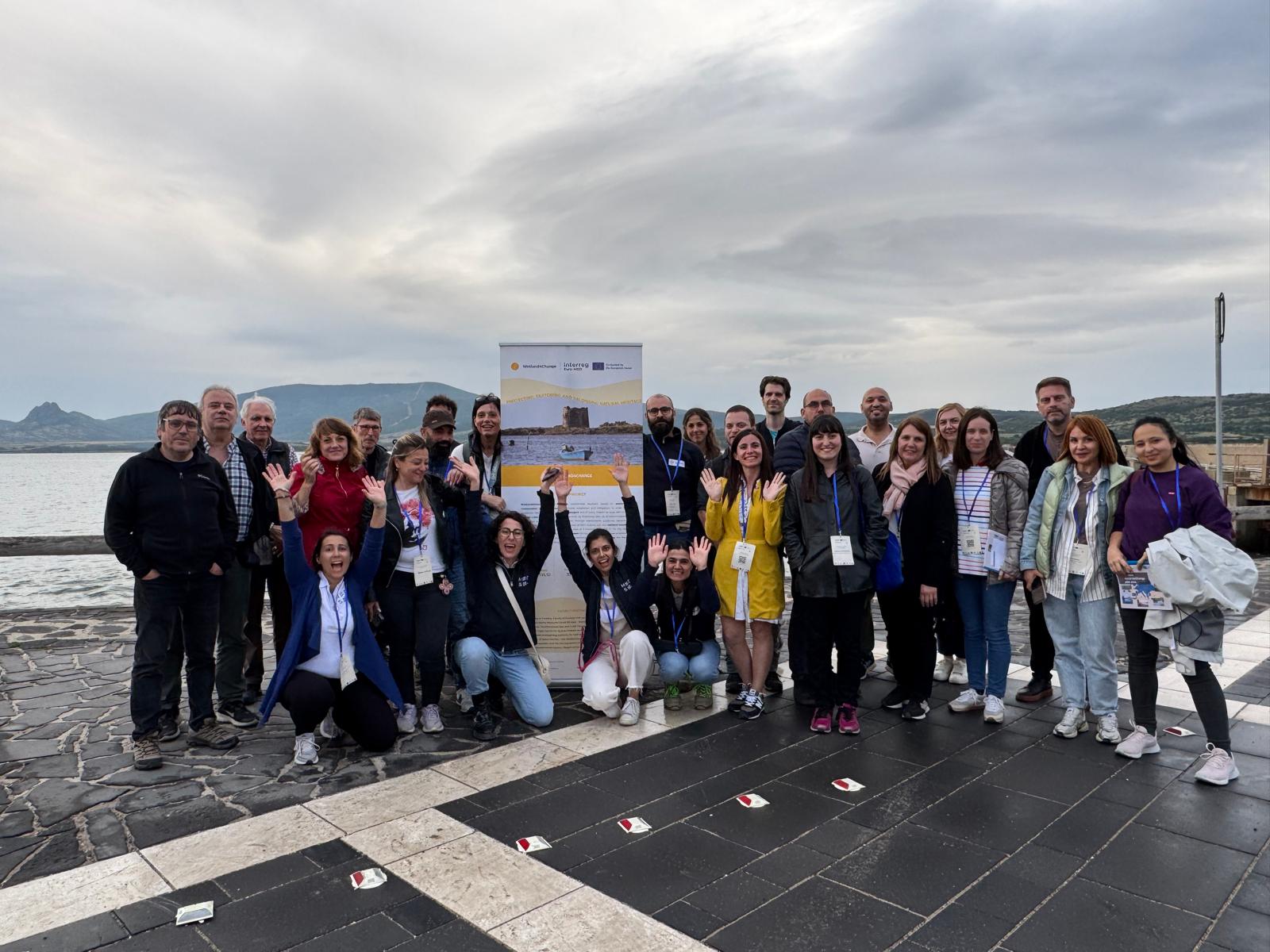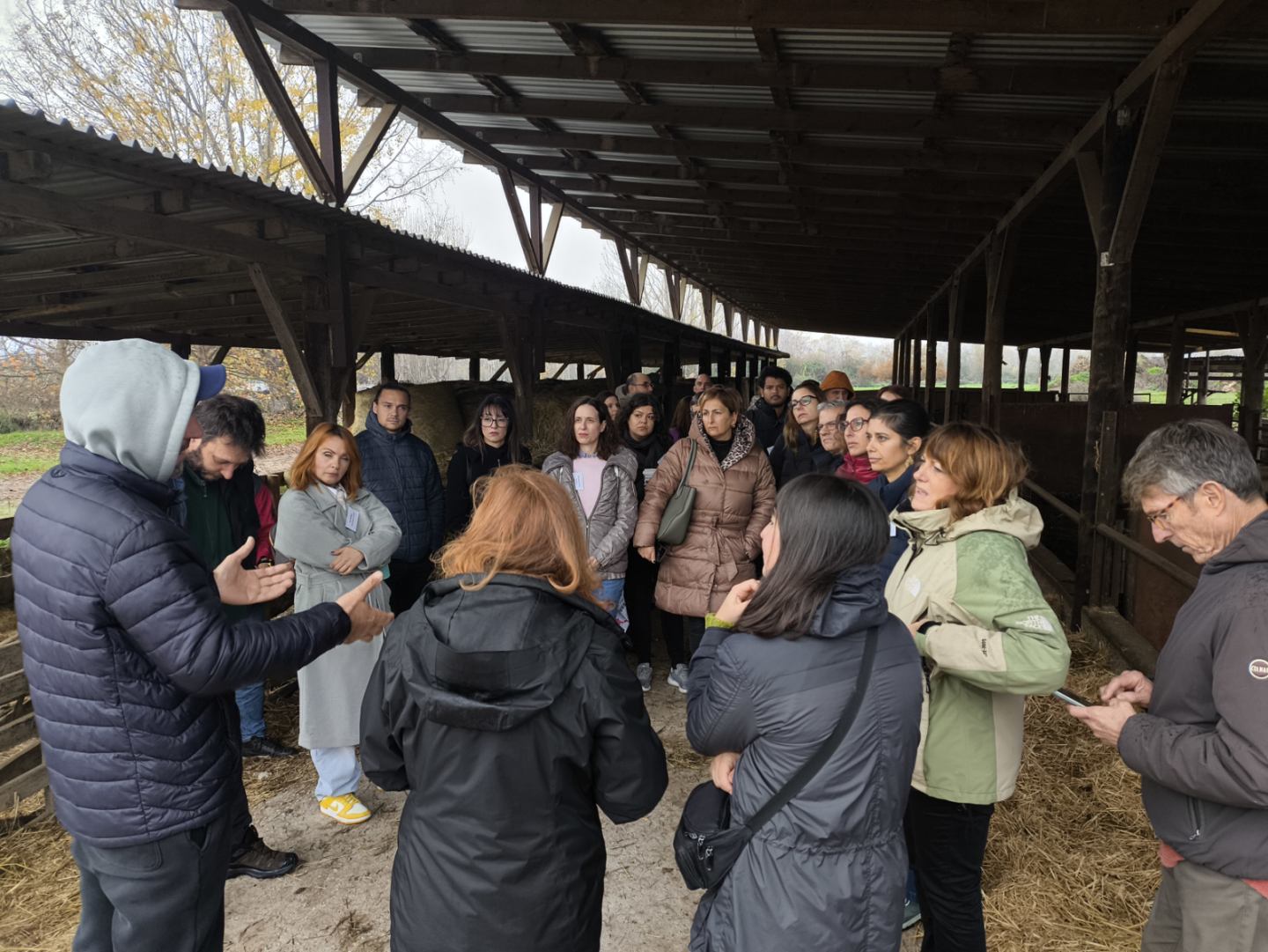On May 13 and 14, 2025, the Wetland4Change researchers from the University of Forestry of Sofia (lead Partner), Valencia (Uveg), Malaga (Uma), the Greek Institute for Wetlands EKBY, Tour Du Valat and the MEDSEA Foundation of Cagliari, coordinator of the meeting and project partner, gathered between Cagliari and Terralba, in Sardinia, to meet and test some nature-based solutions for adaptation to climate change in wetlands.
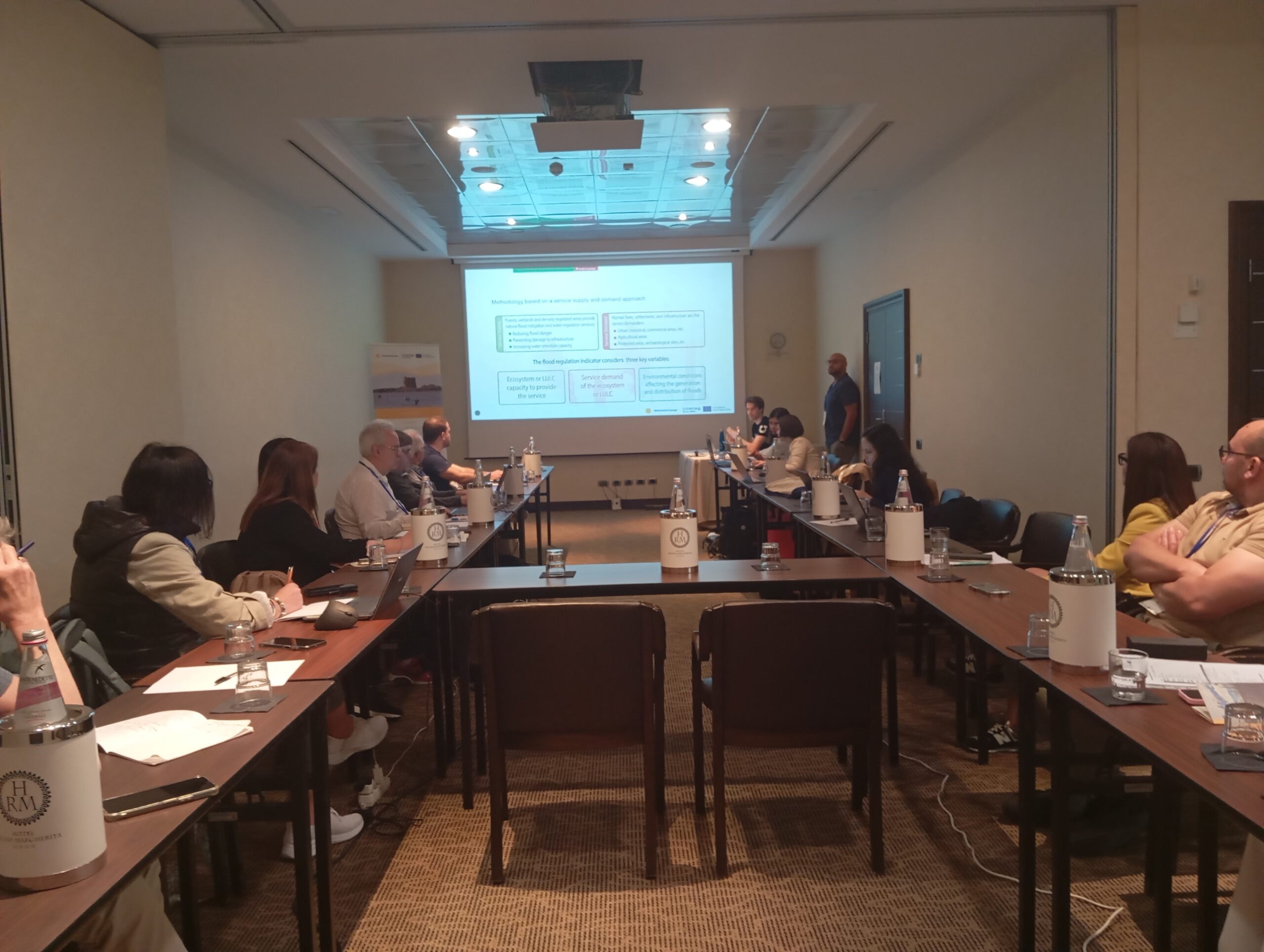
The first day was dedicated to a highly focused technical meeting on flood regulation, led by project partners Anis Guelmami from Tour du Valat (France) and Antonio Sanchez from the European Topic Centre at the University of Malaga (Spain). The experts shared the latest findings from the project’s five pilot sites, showcasing how predictive technologies and modelling tools are being used to reduce flood impacts. These innovations aim to enhance the natural “buffer” and “sponge” functions of wetlands enabling them to absorb, store, and gradually release excess water. This approach plays a critical role in minimizing damage to infrastructure, agriculture, and local communities.
However, a key highlight of the Sardinian meeting was the launch of the project’s first Living Lab, an essential component of the Wetland4Change initiative. The Living Lab serve as real-world demonstrations of the solutions developed across the pilot areas. It provides valuable opportunities for project partners and stakeholders to gather in person, share outcomes, showcase methodologies, and discuss lessons learned during implementation.
In this first Lab, we successfully sampled three areas of wetlands in the municipality of Marceddì for carbon sequestration analysis, all under the curious eyes of our Sardinian and international stakeholders coming all the way from Bulgaria, Greece and Spain as well as representatives from the Natural Heritage Mission to which Wetland4Change belongs.
The group also included representatives from the Valencian government, such as Ignacio La Colomba, and Aylin Hasan from the Bulgarian Ministry of Environment and Water, as well as from the Sardinian Regional Department for Environmental Defense.
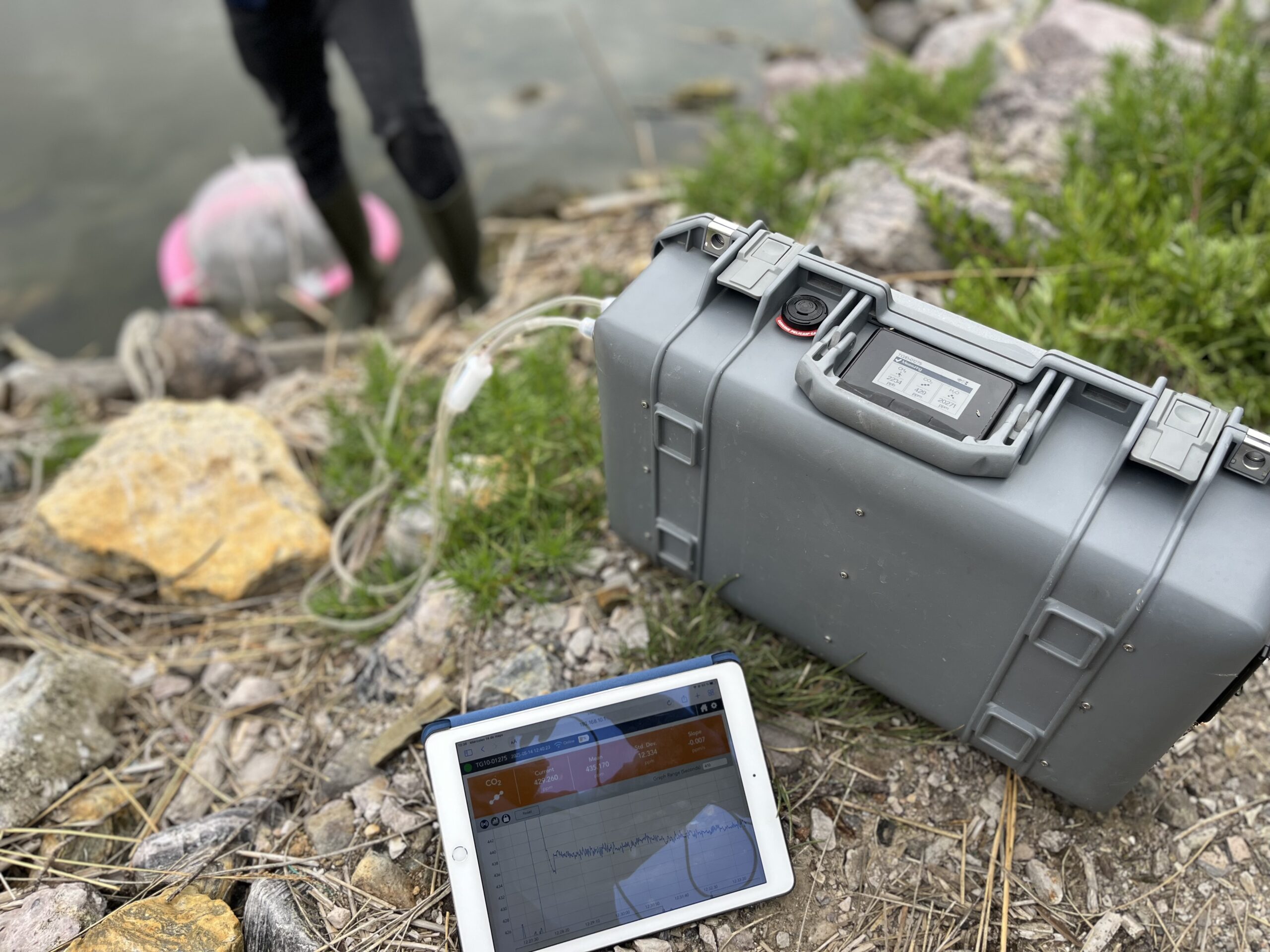
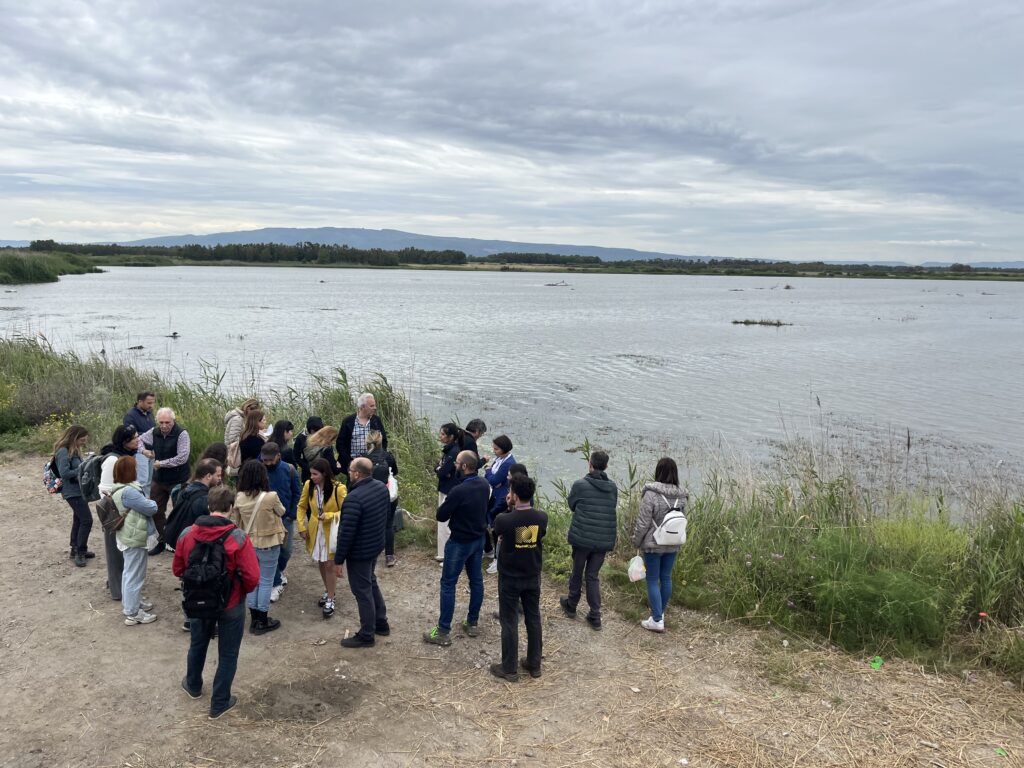
The University of Valencia as lead partner of this Work Package dedicated to wetlands services for carbon sequestration experts Carlos Rochera and Antonio Camacho explained how the system is working and the key role of wetlands as natural carbon sinks (See how these methods are achieved).
The monitoring on greenhouse gas fluxes have highlighted how even contiguous areas of the pond can vary significantly in terms of CO₂ storage and release capacity, depending on various factors such as depth, water salinity, and the presence of organic material.
“The collected data will also be useful to refine the assessment models and contribute to the definition of local strategies for adaptation and mitigation to climate change,” says Carlos Rochera from the University of Valencia. “For example, monitoring greenhouse gas fluxes can guide the management of wetlands in line with climate objectives, as well as support management strategies on vegetation and sediments.”
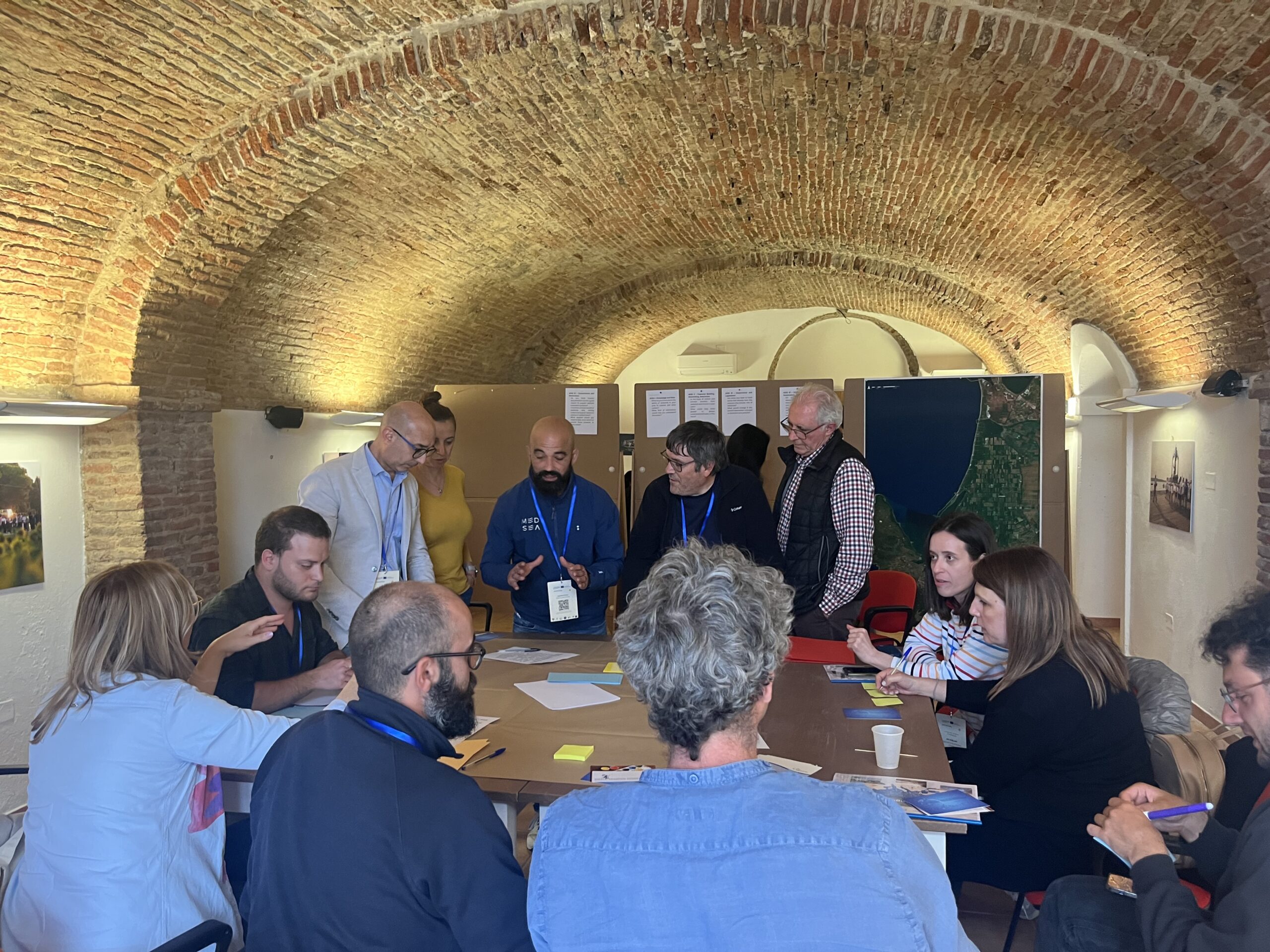
Later in the afternoon, we gathered in Marceddì’s Museo del Mare, near by our Sardinian pilot site, to discuss in separate sessions the axis related to the two work packages with different stakeholders (policy makers from Bulgaria Greece and Italy, water management bodies, members from the fishery and agriculture sector, environmental actors…).
This first Living Lab proved to be a dynamic platform for knowledge exchange, reinforcing the project’s commitment to innovation, collaboration, and nature-based solutions for climate resilience.
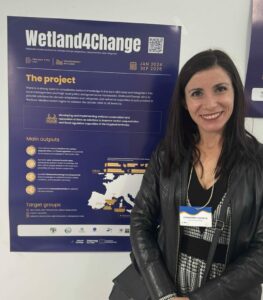
Stanimira Ivanova | University of Forestry
“Wetland4Change represents the first combined study of this kind,” explains Stanimira Ivanova, project coordinator for Wetland4Change from the University of Forestry, lead partner, “aims to provide a solid scientific basis for understanding the role of wetlands in carbon and flood regulation and to support the identification of priority areas to protect or restore to maximize the sequestration function.”
“Wetlands represent a fundamental ally in the fight against climate change,” concluded Petar Petrov, project manager for Wetland4Change.

